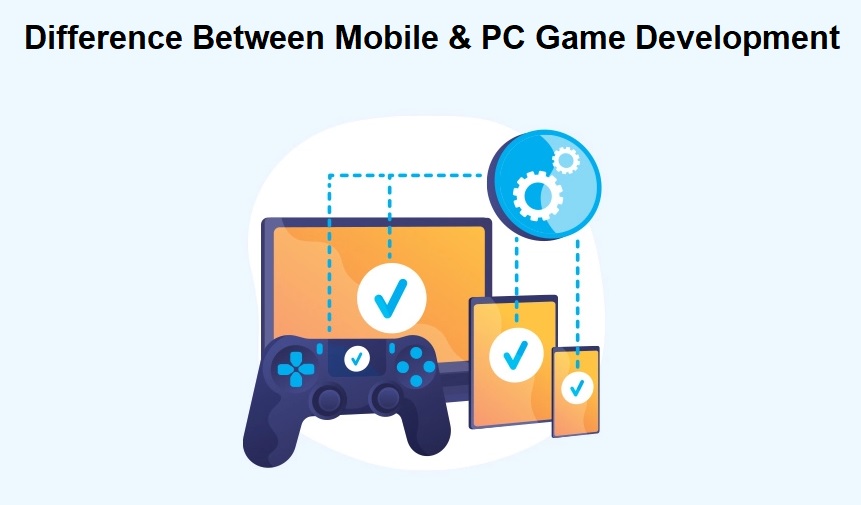The mobile gaming industry grows rapidly every year. According to 2022 statistics provided by Techjury, the number of active mobile gamers worldwide currently exceeds 2.2 billion. Furthermore, 62% of people install a game on their mobile devices within the first week of owning them.
So how does it affect the gaming industry in general? Can mobile games become serious competitors to PC and desktop ones? And what’s the difference in their development processes? This article will answer all these questions.
What are mobile game development features and advantages?
Mobile game development is the process of creating games for mobile devices. Such games can be very simple (like the mobile version of the old-school game Tetris) or much more complex (for instance, a mobile version of the PC game Hearthstone released by Blizzard Entertainment). But in any case, they have great perks that encourage companies to either focus on mobile gaming or at least adapt their existing PC or console games to mobile devices.
The most obvious perk is the portability, which also explains the popularity of GameBoy and PSP consoles. People like to bring the fun with them wherever they go, and mobile gaming allows them to do that. Sure, you cannot play AAA games like the Witcher on such devices, but there are still good options to play outside of your home.
The second advantage is the size of the potential audience. More than a billion people use mobile phones today. And while some of these phones are quite simple, many of them work on iOS, Android, Symbian, and other platforms powerful enough to support gaming. Furthermore, more and more people switch to such platforms, so the audience is already massive and continues to grow. So if you want to build a career in gaming, maybe it’s time to research how to get started in mobile game development — there are many perspectives in this niche.
Open development standards are another great perk for many developers. With mobile platforms, you can create great games without having to pay the phone manufacturing companies. However, when it comes to PCs and consoles, the situation is different. You have to receive authorization and support from the manufacturers, and pay for that. And the prices of these royalties can be very high.
What are PC game development features and advantages?
PC and console games usually provide a richer and more diverse gaming experience along with more comfort. They are something that players are more familiar with and for now, they can offer more than mobile games. Even the most modern mobile devices currently don’t have powerful processors and screens to support big titles.
PC games are well-known for their outstanding graphics that improve every year: popular titles can look very realistic and detailed, supporting reflections, weather effects, lighting, and so on. It’s like watching a movie — only the one you can participate in and influence its ending. On the other hand, this is one of the many reasons such games require a more advanced and resourceful approach.
How difficult is it to build a game for PC? That depends on the title. Indie games can be much simpler to develop and deploy. At the same time, not many of them succeed, so potential developers often aim for more high-level games that could potentially bring more profit.
However, such profit comes at a price. It takes a larger team to build a game for PC — 12 to 30 people compared with 3 to 4 when we’re talking about mobile games. The development cycle is also longer: two or three years, while mobile games can be built in a few months. The budgets are much bigger as well: from $1.5 million to $5 million for most conventional games compared to less than $100,000 for mobile ones.
What does the future bring?
So what to expect from the gaming industry in the future? At the moment, it’s unlikely that mobile games will become a serious competitor to PC and console ones in the next couple of years. They rather look like different niches that sometimes interact and complement each other instead of competing.
Game developers tend to think the same. Many of them are already implementing the cross-platform approach, trying to reach as many different audiences as possible. Games like Genshin Impact enter the market already supporting multi-platform experience: they can be played on PCs, consoles, and mobile devices. So maybe this is what the nearest future will look like: big titles will try to cover both the PC, console, and mobile gaming market, while smaller ones might choose a niche that will suit them better.
Conclusion:
Both mobile and PC gaming have unique features and perks. Mobile games are usually easier, quicker, and cheaper to develop. Being cheaper and more portable, mobile devices can offer a bigger potential audience. However, currently, they cannot become serious competitors to PC and console gaming, especially if it's the AAA games we’re talking about.
PC gaming, on the other hand, offers richer and more diverse experiences to players. At the same time, such games are more costly to develop. They also require bigger teams with more experience and longer development cycles. So at the moment mobile and PC gaming aren’t competitors. Instead, they are different niches able to offer players a diverse experience, depending on their needs at the moment.








COMMENTS